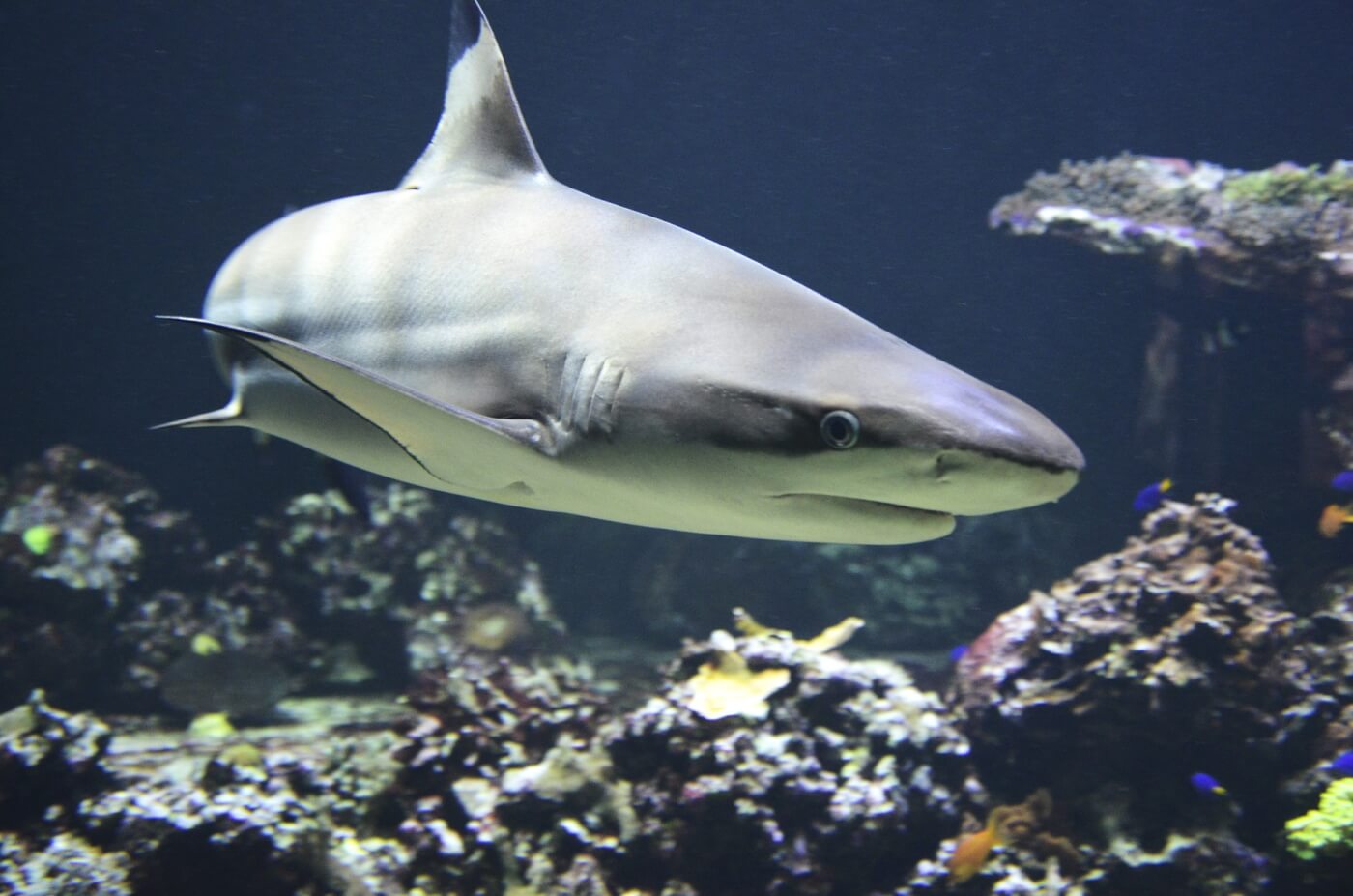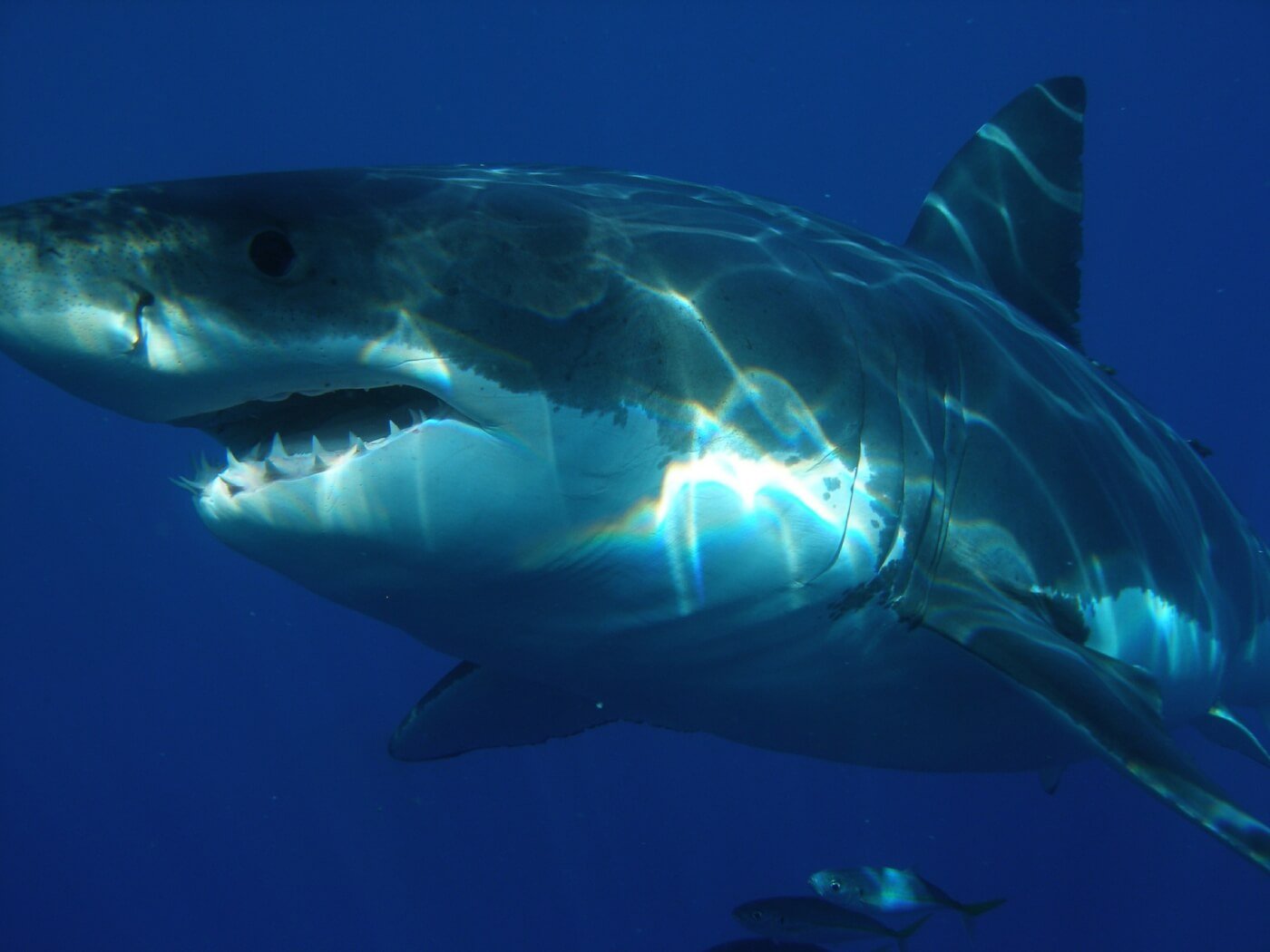Lawn Mowers, Tanning Beds, and 20-Plus Other Things That Kill More People Than Shark Encounters
If the Jaws theme song plays in your head every time you wade out into the ocean, you’ve fallen victim to the greatest threat to our fellow animals around the globe: speciesism.

Negative stereotypes about sharks in the media portray these magnificent animals as a threat to humans, when really, it’s the other way around. When you look at the numbers, it’s obvious that sharks are the ones who should be making horror films about us.
Experts have said that humans kill an estimated 100 million sharks every year, while the average number of human fatalities from sharks is around five each year (or one every two years in the U.S.). Even in these extremely rare instances, sharks aren’t acting maliciously—an accidental bite may result when a shark simply investigates what they perceive as a foreign object in the water. More humans have died from attempting dangerous TikTok challenges this year than from shark encounters.
Here are some other things that are more likely to kill you than a shark encounter.
- Accidental poisoning: An average of 240 humans die every day in the U.S. by unintentional poisoning from substances such as legal and illegal drugs, alcohol, and pesticides or other chemicals.
- Air travel: 2023 saw a total of 72 air traffic fatalities.
- Boating: More than 4,000 recreational boating accidents occur each year in the U.S., resulting in more than 500 deaths.
- Cars: More than 46,000 people die in car crashes each year in the U.S.
- A champagne cork: One study estimated that around 24 humans die each year in France from incidents involving champagne corks.
- Constipation: About 900 Americans die annually from diseases associated with or related to constipation. (A friendly reminder: Vegan foods such as whole grains, vegetables, fruits, and legumes are rich in fiber and promote good digestion.)
- Contracting an infection in a hospital: In the U.S., healthcare-acquired infections account for an estimated 99,000 deaths each year.
- Cycling: Nearly 1,000 bicyclists die in the U.S. every year.
- Excessive cold: About 1,330 humans die of exposure to the cold in the U.S. each year.
- Falling: According to the National Safety Council, humans have a one in 98 chance of dying from a fall. The odds of being killed by a shark attack are roughly one in 3.7 million.
- Fireworks: An average of eight humans die from fireworks-related injuries each year in the U.S.
- Food poisoning: Every year, an average of 3,000 humans die in the U.S. from foodborne illnesses—many of which come from eating animal flesh.
- Hunting: An average of 100 human fatalities occur every year in the U.S. as a result of hunting accidents.
- A jet ski: On average, 40 to 50 jet ski riders die in the U.S. annually.
- A lawn mower: Statistics show that lawn mower accidents cause an average of 70 fatalities a year in the U.S.
- A ladder: About 300 humans die from ladder-related injuries in the U.S. each year.
- Lightning strikes: They kill about 20 humans each year in the U.S.
- A rip current: When it comes to ocean-related deaths, sharks are far less threatening than the ocean itself—an average of 71 humans die in rip current drownings each year.
- Rock climbing: The fatality rate due to rock climbing is around 30 deaths per year globally.
- The sun: An estimated 60,000 deaths each year worldwide are caused by too much exposure to ultraviolet radiation.
- Skydiving: An average of 22 humans die while skydiving in the U.S. annually.
- A tornado: In an average year, tornadoes cause around 80 deaths in the U.S.
- A train: Each year, nearly 1,000 humans die in train-related accidents in the U.S.
- Tanning beds: Deaths related to tanning beds aren’t like what’s shown in Final Destination 3, but researchers estimate that around 1,200 deaths from skin cancer in the U.S. could be attributed to indoor tanning.
- Water: There are up to 4,000 deaths from drowning in the U.S. each year.
Sharks Aren’t the Enemy—Help Protect Sea Life by Going Vegan
Every animal is someone. Sharks are complex, intelligent beings with unique personalities who don’t want to interact with—much less harm—humans. Some species of sharks form structured social groups and work with each other to obtain food. Some are playful: Porbeagle sharks have been observed chasing after other sharks who trailed pieces of kelp behind them. Some form friendships. For example, scientists reported that two great white sharks named Simon and Jekyll had traveled together along the Atlantic coast for more than 4,000 miles—showing that these animals are not solitary, as was once thought. Sharks learn from one another, have long-term memories, and can perceive optical illusions. It’s time for humans to protect and respect sharks, not vilify them.
The deadliest jaws to sharks and other animals are our own—but they don’t need to be. Protect sharks, other sea life, and your own health by eating vegan:






